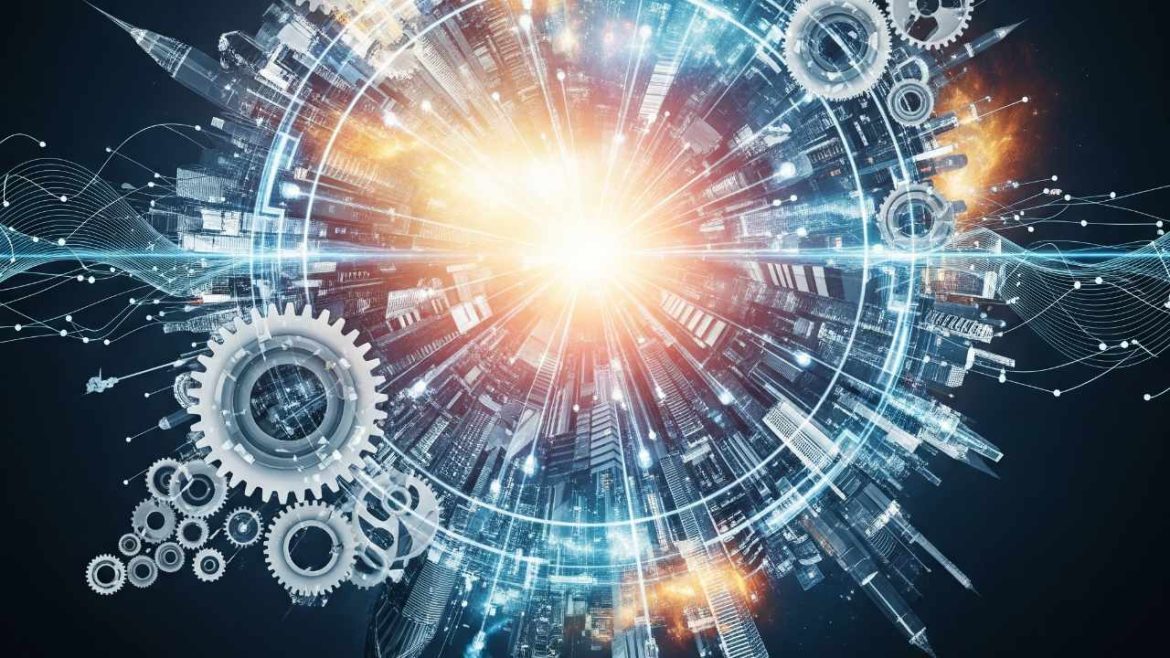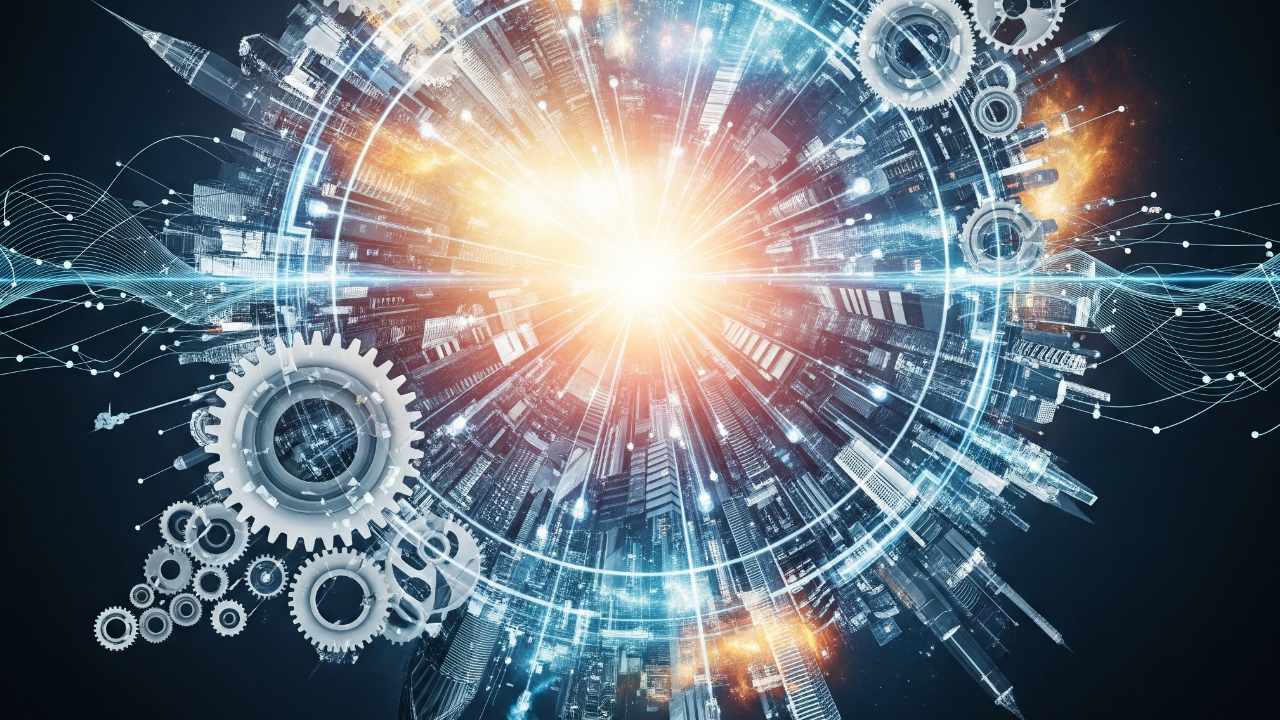The Intersection of Cryptocurrency and Artificial Intelligence: A Transformative Synergy
Introduction: The Convergence of Two Revolutionary Technologies
The digital landscape is undergoing a profound transformation, driven by the convergence of two groundbreaking technologies: cryptocurrency and artificial intelligence (AI). These innovations, once considered distinct and separate, are now intertwining to create a symbiotic relationship that is reshaping industries, economies, and societies. The fusion of blockchain’s decentralized trust and AI’s analytical prowess is unlocking unprecedented opportunities, from financial services to healthcare, supply chain management, and beyond. This report explores the transformative potential of this convergence, highlighting the synergies, applications, and challenges that lie ahead.
The Blockchain Foundation: Decentralization and Trust
Blockchain technology, the backbone of cryptocurrencies, is revolutionizing the way we conduct transactions and store data. Its decentralized nature eliminates the need for intermediaries, fostering trust and transparency in digital interactions. This trustless system is particularly valuable in industries plagued by inefficiencies, fraud, and centralized control.
Financial Services: Democratizing Access and Efficiency
Cryptocurrencies are disrupting traditional financial systems by enabling seamless, low-cost, and borderless transactions. The tokenization of real-world assets, such as art and real estate, allows for fractional ownership and increased liquidity, democratizing access to previously exclusive investment opportunities. Stablecoins, backed by traditional currencies, are gaining traction as a means of stabilizing the volatile crypto market and facilitating everyday transactions. The U.S. government’s interest in stablecoin legislation signals a shift towards digital asset leadership, potentially spurring further innovation in blockchain-based financial services.
Supply Chain Management: Transparency and Accountability
Blockchain’s immutable ledger can track goods from origin to consumer, ensuring authenticity and preventing counterfeiting. This transparency can streamline logistics, reduce costs, and enhance accountability across the entire supply chain. For instance, luxury brands can use blockchain to verify the authenticity of their products, while consumers can trace the provenance of their purchases, ensuring ethical sourcing and fair trade practices.
Healthcare: Secure and Personalized Care
In healthcare, blockchain can securely store and share patient medical records, ensuring privacy and accessibility. AI algorithms can analyze this data to personalize treatment plans, predict potential health risks, and recommend preventative measures. This integration can lead to more accurate diagnoses, improved patient outcomes, and accelerated medical research.
The AI Engine: Automation, Insights, and Personalization
Artificial intelligence is the analytical powerhouse that unlocks the true potential of blockchain. AI algorithms can process vast amounts of data generated by blockchain networks, identifying patterns, predicting trends, and automating complex tasks. This fusion of AI and crypto creates a powerful engine for innovation across industries.
Fraud Detection and Security
AI-powered security systems can analyze blockchain transactions in real-time, flagging suspicious activity and preventing fraud. Machine learning algorithms can learn from past attacks, adapting and improving security protocols to stay ahead of malicious actors. This proactive approach can enhance the security of blockchain networks, protecting users and their assets.
Algorithmic Trading and Investment
AI algorithms can analyze market data, identify profitable trading opportunities, and execute trades automatically. This automation can optimize investment strategies, maximize returns, and reduce risk. AI-driven trading platforms can provide real-time insights and recommendations, empowering investors to make informed decisions in the dynamic crypto market.
Content Creation and Curation
AI can analyze user preferences and consumption patterns to curate personalized content experiences. In the entertainment industry, AI can enhance creative processes, detect copyright infringements, and ensure fair compensation for artists. This integration can revolutionize the way content is created, distributed, and monetized, fostering a more equitable and innovative ecosystem.
Synergistic Applications: Where Crypto and AI Converge
The true potential of these technologies lies in their synergistic applications. By combining the decentralized trust of blockchain with the analytical power of AI, industries can unlock unprecedented levels of efficiency, transparency, and innovation.
Decentralized Autonomous Organizations (DAOs)
DAOs are organizations governed by rules encoded on a blockchain and enforced by smart contracts. AI can enhance DAOs by automating decision-making processes, optimizing resource allocation, and predicting potential risks. This integration can lead to more efficient and transparent organizations, fostering greater collaboration and innovation.
Smart Contracts
Smart contracts are self-executing contracts written in code and stored on a blockchain. AI can analyze and optimize smart contracts, ensuring their security and efficiency. This integration can lead to more reliable and trustworthy agreements, reducing the need for intermediaries and legal disputes.
Decentralized Finance (DeFi)
DeFi platforms use blockchain technology to provide financial services such as lending, borrowing, and trading without intermediaries. AI can analyze market data, manage risk, and optimize investment strategies in DeFi platforms. This integration can lead to more efficient and accessible financial services for everyone.
AI-Driven Crypto Trading Platforms
These platforms leverage AI to analyze market data, identify patterns, and execute trades automatically. The combination of AI’s analytical capabilities with the speed and efficiency of cryptocurrency trading can lead to higher returns and reduced risk.
Tokenized AI Models
AI models can be tokenized and traded on blockchain networks, allowing developers to monetize their creations and users to access cutting-edge AI technology. This integration can democratize access to AI and foster innovation in the field.
Challenges and Opportunities: Navigating the Future
Despite the immense potential of crypto and AI, several challenges must be addressed to ensure their responsible and sustainable development.
Regulatory Uncertainty
The lack of clear regulatory frameworks for cryptocurrencies and AI can stifle innovation and create uncertainty for businesses. Governments must work together to establish clear and consistent regulations that protect consumers while fostering innovation.
Security Risks
Blockchain networks and AI systems are vulnerable to security threats such as hacking and data breaches. Robust security measures must be implemented to protect user data and prevent malicious attacks.
Ethical Considerations
AI raises ethical concerns such as bias, privacy, and job displacement. Developers and policymakers must address these concerns to ensure that AI is used responsibly and ethically.
Scalability
Some blockchain networks struggle to handle high transaction volumes, limiting their scalability. Technological advancements such as layer-two scaling solutions are needed to improve scalability and enable widespread adoption.
Interoperability
The lack of interoperability between different blockchain networks and AI systems can hinder their integration and limit their potential. Standards and protocols are needed to facilitate interoperability and enable seamless communication between different systems.
Conclusion: Embracing the Transformation
The convergence of cryptocurrency and artificial intelligence represents a paradigm shift, a technological renaissance poised to redefine industries and reshape our world. As Vlad Tenev, CEO of Robinhood, has aptly stated, these technologies are not merely trends but fundamental forces that will shape the future. By embracing innovation, fostering collaboration, and addressing the inherent challenges, we can harness the power of crypto and AI to create a future where technology empowers individuals, promotes economic growth, and improves the quality of life for all. The algorithmic age is upon us, and the possibilities are limitless.





